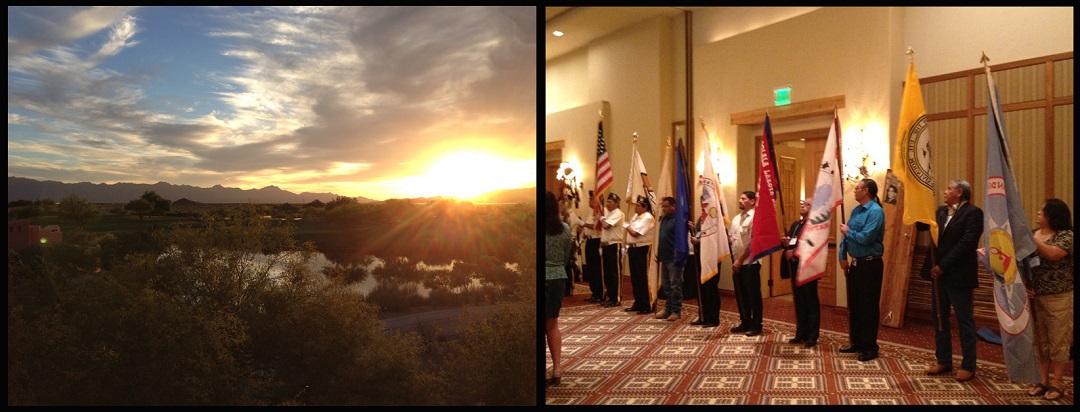On May 21-24, I was able to attend and help facilitate our Tribal Justice Policy Academy in Chandler, Arizona. The Policy Academy was focused on aiding eight tribes in developing a plan for alternatives to incarceration for adult tribal members who might benefit from jail diversion opportunities, and particularly strategies related to individuals with co-occurring substance use and mental health diagnoses.
The eight tribes arrived at the Academy from diverse locations across the country, but were unified in their struggles surrounding lack of resources, often rural location, high rates of staff turnover, and absence of communication and cross-training between their criminal justice and behavioral health systems.
Chandler’s local tribe, the Gila River Indian Community, provided a drum corps and color guard presentation to open the meeting. This was a warm welcome for the teams that set the tone for the next few days. The Policy Academy offered a combination of topical plenary and concurrent sessions, as well as tribe-specific facilitated workgroups. Sessions focused on areas such as trauma, re-entry and community supports, screening and assessment for co-occurring disorders, specialty courts, evidence-based practices, cultural considerations, integrated primary and behavioral health care, and developing effective partnerships. During the workgroup sessions, each tribe developed a written action plan based on the team’s identified priorities for change surrounding alternatives to incarceration, and received on-site technical assistance regarding the priorities. On the final day of the Academy, the tribes visually displayed their work to each other through a very creative poster session and report-out, which included activities and accomplishments during the Academy, as well as future plans and potential technical assistance needs.
Reported highlights of the Academy included the opportunity for collaboration between the tribes’ behavioral health and criminal justice systems, discussion with federal agency representatives, and inter-tribal networking. I was fortunate to be a part of this culturally rich Academy and look forward to continuing to work with the tribes.
Ashley is a Project Assistant for SAMHSA’s GAINS Center for Behavioral Health and Justice Transformation.


